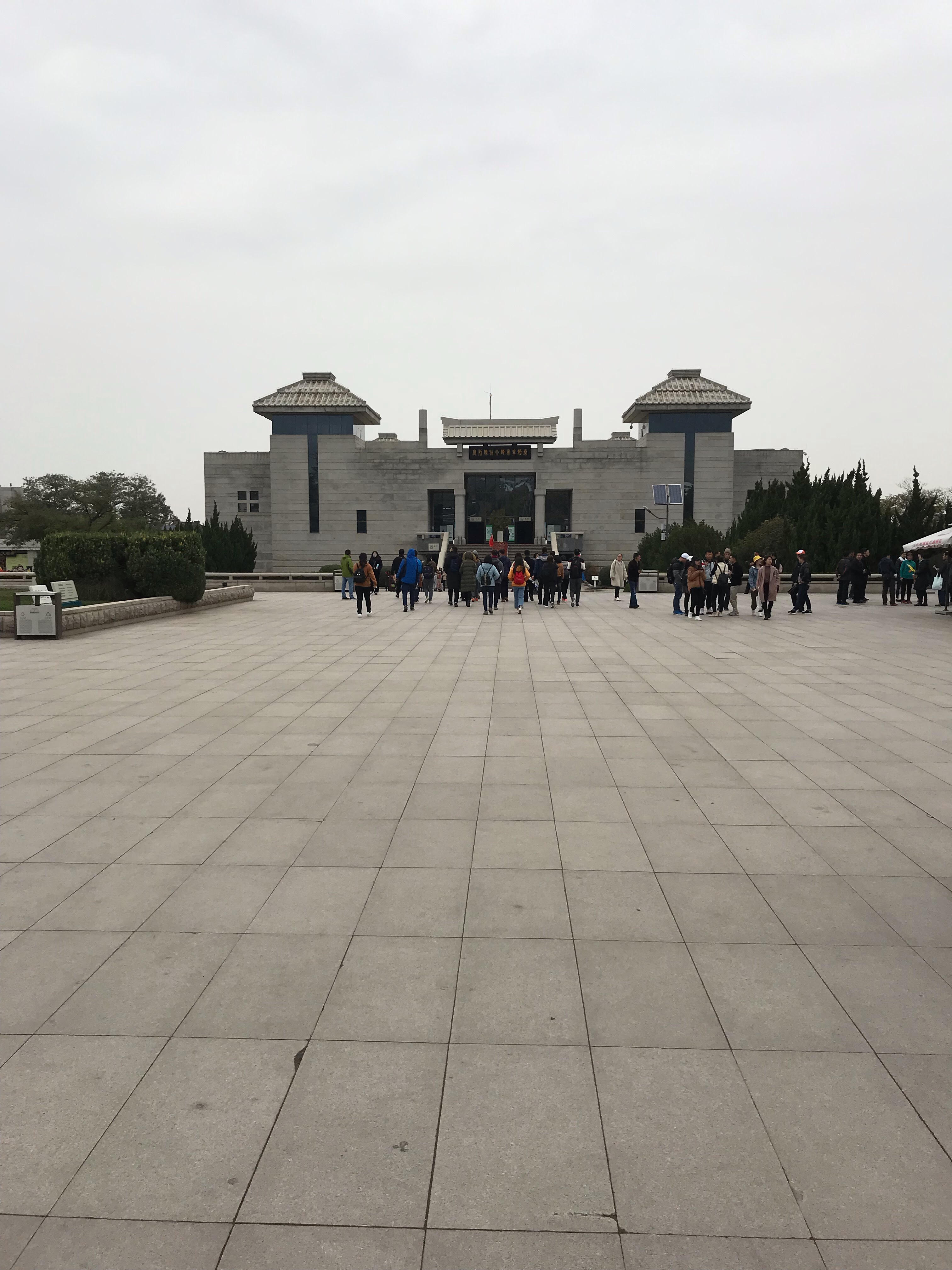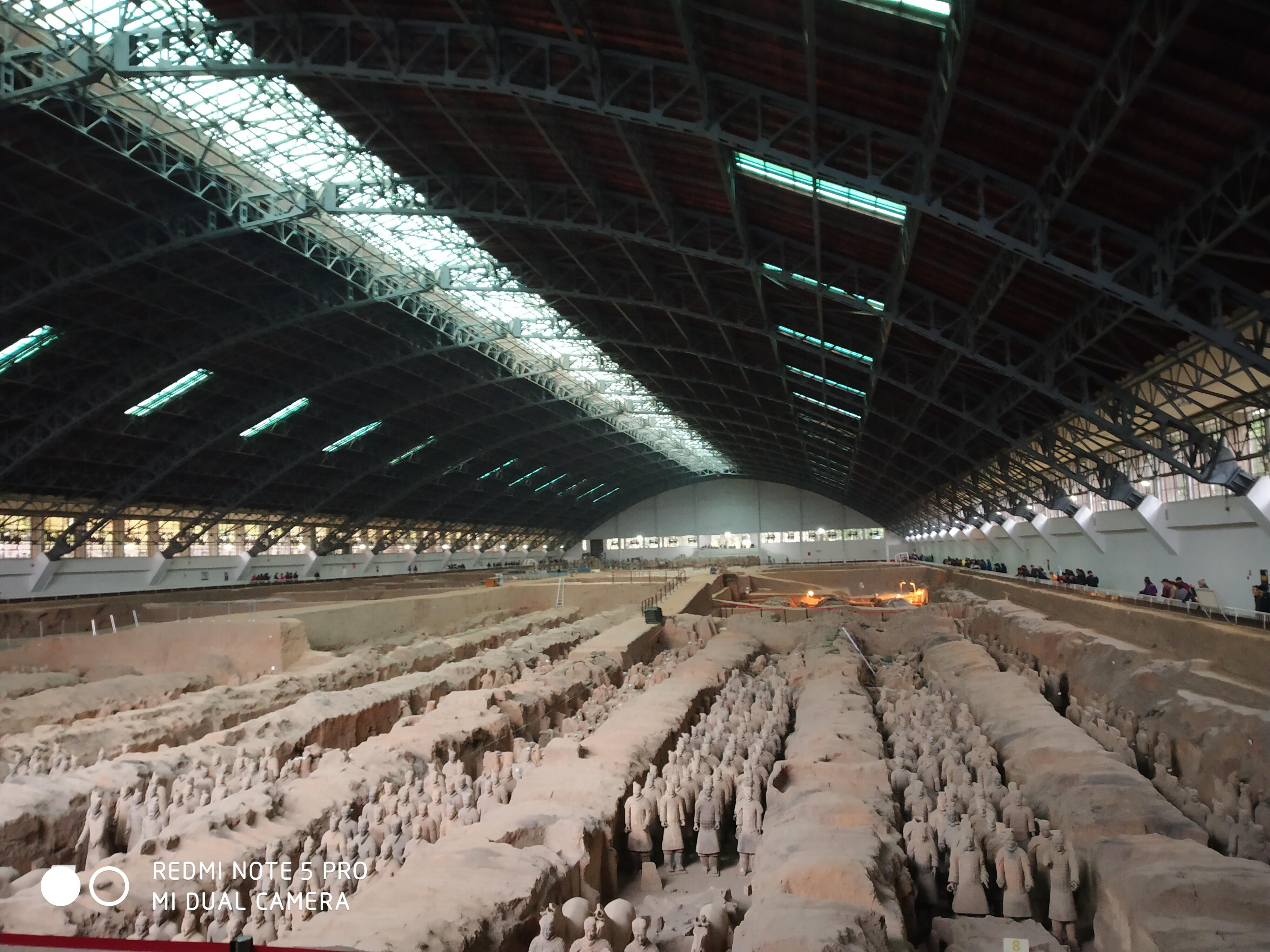If you return from China without seeing the Terracotta Warriors or the Terracotta Army, as they are also called, you have not seen China at all. China is not only about The Great Wall, Forbidden City and the glitz of Shanghai but much more, with the Terracotta Warriors taking you back over 2200 years. The former French President, Jacques Chirac called the Terracotta Warriors, the eighth wonder of the world.
So off we went to the ancient city of Xi’an( pronounced She-aahn) from where the Silk Road started winding its way across western China, Tibet, Myanmar and through to India and Afghanistan. Situated around 1200 kilometers south-west of Beijing, the city in no way appeared ancient — A huge city with broad avenues, massive buildings and a population of 12 million with a proliferation of malls and glitzy sign-boards of all international brands be it Zara, Starbucks, KFC, Louis Vuitton, Omega and so on. One of the most polluted cities in China ( air -pollution) with a blanket of smog hanging over the city on Day 1. We were told by our guide that a tall air-purifier had been constructed in the city to re-circulate pure air after purifying the polluted air. It rained on Day 2, the smog was out and the city wore a new washed look.

Next morning, we set off to see the Terracotta Warriors, an hour’s drive from our hotel. Again good, broad roads, some traffic and finally we were there at the village housing the warriors. Yes, it is a village which has been fully refurbished to make it tourist-friendly. Neat and clean, easy to walk, greenery and facilities for refreshments, toilets and the ubiquitous photo-shoots where one can dress up as Terracotta Warriors. Crowded, even though it was off-season.




As we stand below the statue of Qin Shi Huang, the first emperor of China, our guide narrates to us that the emperor’s tomb is around a kilometer away but the same has not yet been opened. There are rumors that there could be hidden treasures inside the tomb, but the Chinese as a mark of respect do not disturb the dead. Now we are at the Information center where we are introduced to the farmer, Yang who accidentally discovered the site of the Terracotta Warriors in 1974 while digging his land for water. Yes, as late as 1974 only was this site discovered even though it is over 2200 years old. Yang shook hands with us but when we wanted to click pictures, his minders, a couple of young ladies stopped us saying, we should buy on book on the Warriors costing 200 yuans, which will be signed by Yang and we could then have a picture with him. We politely declined and Yang went back to reading his newspaper. Was he rewarded for unearthing possibly the world’s biggest archaeological treasure, we asked our guide. We were told he was given 100 yuans in 1974 and his land taken away for being converted into a museum. What a miserable existence poor Yang has today.
It is an indoor museum — a museum covering the pits or the chambers where these life-sized warriors were placed ( in formation) over 2000 years ago. As we entered the hall covering Pit 1, the largest of the 3 pits opened to the public, we were simply stunned.



Stunned by the enormity of it all, stunned by the intricate workmanship with each warrior looking different facially, by his hairstyle and dress, stunned by the history when we heard it and above all stunned by the human beliefs, abilities,emotions, treachery,etc. As we stared down from the viewing gallery which runs round the entire hall, we could see an army of around 2000 warriors in battle formation.Each of them life-size, around 1.65 to 1.80 meters tall. All of them originally held real weapons like spears and bows & arrows but most of them had been subsequently stolen by generals who had plans to revolt. Why were these warriors created in the first place? Qin Shi Huang, the first emperor of China decided on the location for his tomb and surrounding that he ordered the building of these underground vaults with warriors, archers, cavalrymen, chariots and senior commanders. He believed that this Terracotta army would serve him in the world beyond too. We may say it was human vanity or foolishness, but look at it the other way— in those times, when kings died, their armies of live soldiers were buried along with him for protection. So Qin Shi Huang was something of a reformer, as he did not not to bury his soldiers live but made terracotta figures of them. We were told it took 36 years to build and by the time the Emperor died in 210 BC, 700,000 workers had worked non-stop and most of them were buried alive ( not for any blind belief) but to prevent the secret of this hidden army to be known to the outside world.Human cruelty.


After Pit 1, we move to Pit 3 which stations the command unit and then comes Pit 2, which has the archers, cavalry and chariots. What is interesting to watch is that we see archaeologists working there in make-shift workshops in the pits, piecing together the broken pieces. In piecing them together as a jigsaw puzzle, we were told even Artificial Intelligence is being made use of. What hard work, dedication and ability from these archaeologists! We have the satisfaction of seeing a live excavation site. Seems originally, all the statues were colored but over the years, they have faded away but more importantly we were told, much of the fading happened after they were excavated and exposed to the atmosphere. A couple of statues, well-preserved like that of the kneeling archer, still bear traces of the original colors.



As we walked out of this UNESCO World Heritage site, the mood was sombre. Human beliefs resulting in so much of effort in terms of time, money and lives created a sad feeling. Notwithstanding this, the workmanship skills amazed us as also the painstaking work done by the archaeologists. Our guide said, this was not the end of it — there were 7 more pits being in various stages of excavation. He added that we visit next, there will be more pieces of history to see and be overawed by.
Discover more from BalasBroadcast
Subscribe to get the latest posts sent to your email.
If you have been difficulties winning, move down in limits.
There plenty of resource material of important measures that has got to be taken while playing online competitions.
Then go ahead since its not tough to began. https://hitorifest.com/url/x99am2slot391880